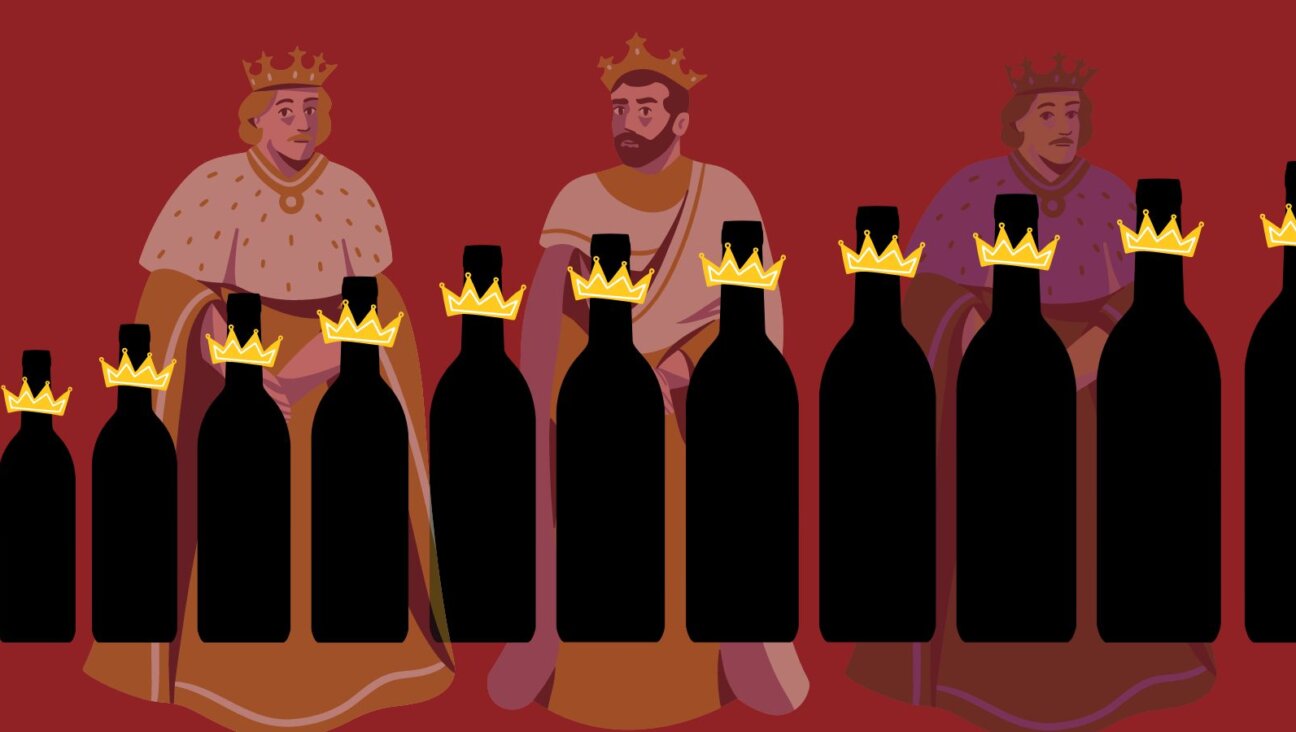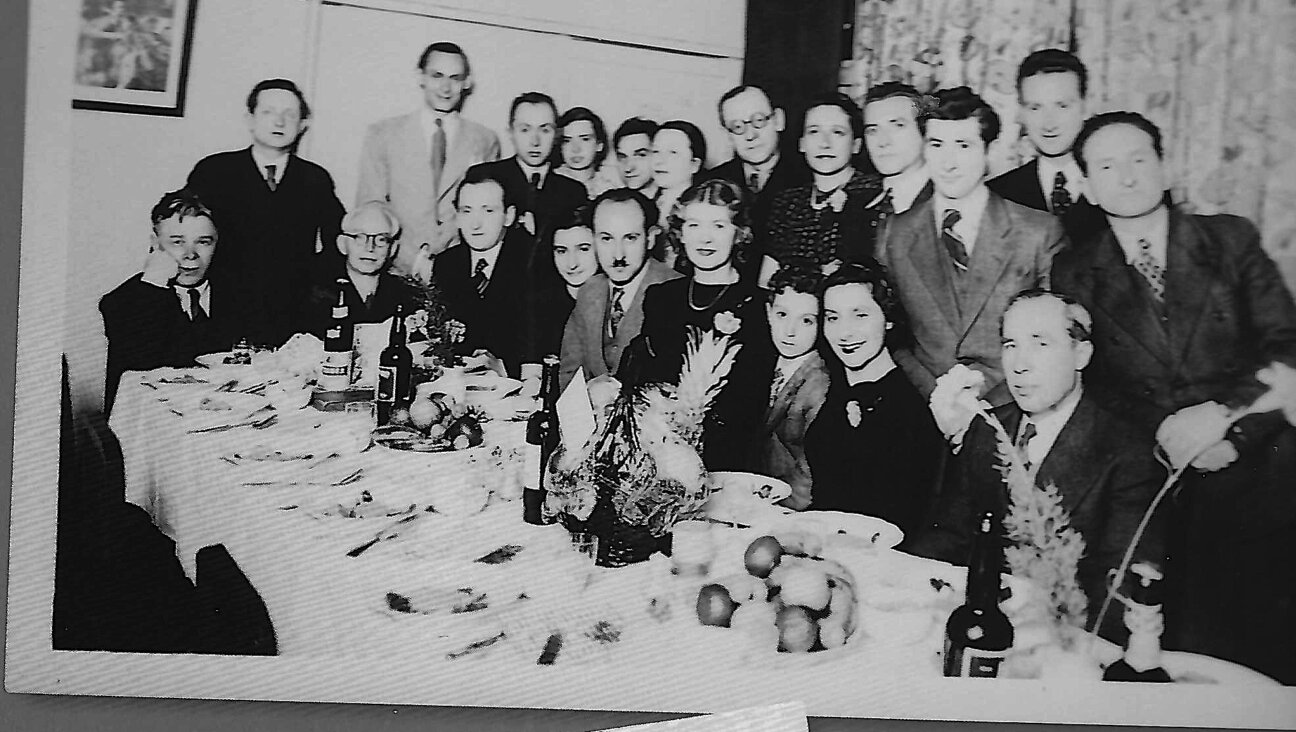After Kristallnacht, a hunger artist confronts a splintering world

The Author of The Passenger: Ulrich Alexander Boschwitz died in 1942 at the age of 27. Courtesy of Leo Baeck Institute New York City
The Passenger
By Ulrich Alexander Boschwitz; translated by Philip Boehm; preface by André Aciman
Henry Holt and Company/Metropolitan Books, 266 pages, $24.99
A feverish urgency infuses Ulrich Alexander Boschwitz’s rediscovered novel about a frantic German Jewish businessman after Kristallnacht, an internal refugee whose doomed travels both echoed and prefigured the author’s own.
Boschwitz’s Jewish father had converted to Christianity and died before Ulrich’s birth in 1915. Even so, Boschwitz had left Germany for Sweden with his Protestant mother in 1935 as restrictions against Jews mounted. He studied in Paris, at the Sorbonne, then decamped to Luxembourg, Belgium and England.
But he must have been following the unfolding disaster in his native country closely, even if from a distance. “The Passenger,” his second novel, has a chilling emotional intimacy. Written in a matter of weeks, the book originally appeared in 1939 in England and shortly afterward in France and the United States. An edited version finally was published in Germany in 2018, to general acclaim, and Philip Boehm has now translated it into English.
Boschwitz based fragments of the picaresque, vaguely absurdist adventures of his protagonist, Otto Silbermann, on his own and his family’s experiences. So we’re informed in an afterword by Peter Graf, the book’s German editor and publisher. A cri de coeur that was largely ignored in its time, “The Passenger” is a fascinating historical document. It sketches a country in the throes of moral collapse and predicts the genocidal darkness about to descend on Europe – “the world has gone mad,” Silbermann declares — with eerie accuracy.

The Passenger: The manuscript of the German original languished in obscurity until 2018, when it was published, to great acclaim, as “Der Reisende.” Translated into 19 languages, it has become a global sensation. By Metropolitan Books
The novel is set in the immediate aftermath of the November 1938 “Night of Broken Glass,” when thousands of German Jewish businesses, homes and synagogues were destroyed, and German Jews were beaten, murdered, and sent to Nazi concentration camps. Its narrative recounts Silbermann’s gradual psychological unraveling – and awakening – as he crisscrosses Germany by rail. Searching for a means of escape, he also derives comfort from the journey itself. “I am safe,” he tells himself, “I am in motion.”
When the novel opens, more than five years into the Third Reich, Silbermann, a World War I veteran, is financially comfortable and happily married to a Christian woman, Elfriede. He has the good fortune, we are told, to have “none of the features that,” according to Nazi racial scientists, “marked him as a Jew.” But his name nevertheless betrays his origins, and his passport bears the telltale “J.” When his wife regrets their failure to emigrate, he responds: “Is someone who forgot to put on a bulletproof vest at the right moment to blame if he gets shot?”
Scant comfort. In the past, Silbermann has counted on his connections, money and assimilation into German society to help him elude the tightening web of Nazi persecution. “For the time being,” he reflects, “I’m simply a well-to-do citizen — under threat, it’s true, but as yet unscathed…. I’ve been officially degraded, but the public debasement has yet to take place.” But his perspective will shift. In a reference to a 1922 Kafka story, he calls himself “a hunger artist by choice,” embracing suffering.
Silbermann’s flight begins when Nazi goons bang on his Berlin apartment door, and he escapes out the back. He manages to obtain a large sum – though less than he is owed – from his Nazi business partner, Becker. He is ejected from a hotel he once frequented. He disdains old friends who look stereotypically Jewish and might imperil his survival. He clings doggedly to his suitcase and a briefcase in which he has stashed his cash, though he seems perennially in danger of leaving one or the other behind. Crossing the border into Belgium, he is coldly turned away.
Meanwhile, the familiar world he has known is splintering — business arrangements, friendships, and families all fracturing under ideological and economic pressure. In his wanderings, he encounters sympathy, aid, indifference, prejudice and hostility – a cross section of German (and Jewish) responses reflecting the confusions of the times.
The third-person narration mostly channels Silbermann’s perspective, self-righteousness morphing into an increasingly justified paranoia. “Maybe things aren’t half so bad, and the whole business is one big psychosis,” he thinks. Returning to Berlin to survey the wreckage of his apartment, he tells himself: “The whole thing is simply unreal.”
Silbermann is hardly a heroic figure, at least initially. Neither an astute judge of politics nor of character, he is peremptory even to his son, Eduard, living in France and struggling to obtain immigration documents for him. Silbermann seems to exalt money above all. “A Jew in Germany without money is like an unfed animal in a cage,” he opines, “something utterly hopeless.”
As his options narrow, he realizes: “For a Jew the entire Reich is one big concentration camp.” And he forecasts the genocide to come: “[T]hey’ll carefully undress us first and then kill us, so our clothes won’t get bloody and our banknotes won’t get damaged. These days murder is performed economically.”
Whatever Silbermann’s flaws, his efforts to retain agency are heart-rending, even admirable. “My fate,” he thinks, “is turning into a figure of speech.” His travels are metaphorical, senseless and finally futile.
So, too, were Boschwitz’s. As André Aciman relates in his preface, Boschwitz was interned on the Isle of Man at the start of war as an “enemy alien,” part of a misguided British policy. He was then deported to Australia – “robbed and subjected to gross indignities” along the way, Aciman writes – and interned in a prison camp in New South Wales.
After Pearl Harbor, however, Boschwitz was freed. In 1942, he fearfully boarded a troopship back to England. It was torpedoed by a German submarine, and he was killed, at 27, along with 361 other passengers – senseless deaths, like so many others, with plenty of complicity to go around.
Julia M. Klein, the Forward’s contributing book critic, has been a two-time finalist for the National Book Critics Circle’s Nona Balakian Citation for Excellence in Reviewing. Follow her on Twitter @JuliaMKlein

I hope you appreciated this article. Before you go, I’d like to ask you to please support the Forward’s award-winning journalism this Passover.
In this age of misinformation, our work is needed like never before. We report on the news that matters most to American Jews, driven by truth, not ideology.
At a time when newsrooms are closing or cutting back, the Forward has removed its paywall. That means for the first time in our 126-year history, Forward journalism is free to everyone, everywhere. With an ongoing war, rising antisemitism, and a flood of disinformation that may affect the upcoming election, we believe that free and open access to Jewish journalism is imperative.
Readers like you make it all possible. Right now, we’re in the middle of our Passover Pledge Drive and we need 500 people to step up and make a gift to sustain our trustworthy, independent journalism.
Make a gift of any size and become a Forward member today. You’ll support our mission to tell the American Jewish story fully and fairly.
— Rachel Fishman Feddersen, Publisher and CEO
Join our mission to tell the Jewish story fully and fairly.
Our Goal: 500 gifts during our Passover Pledge Drive!
























